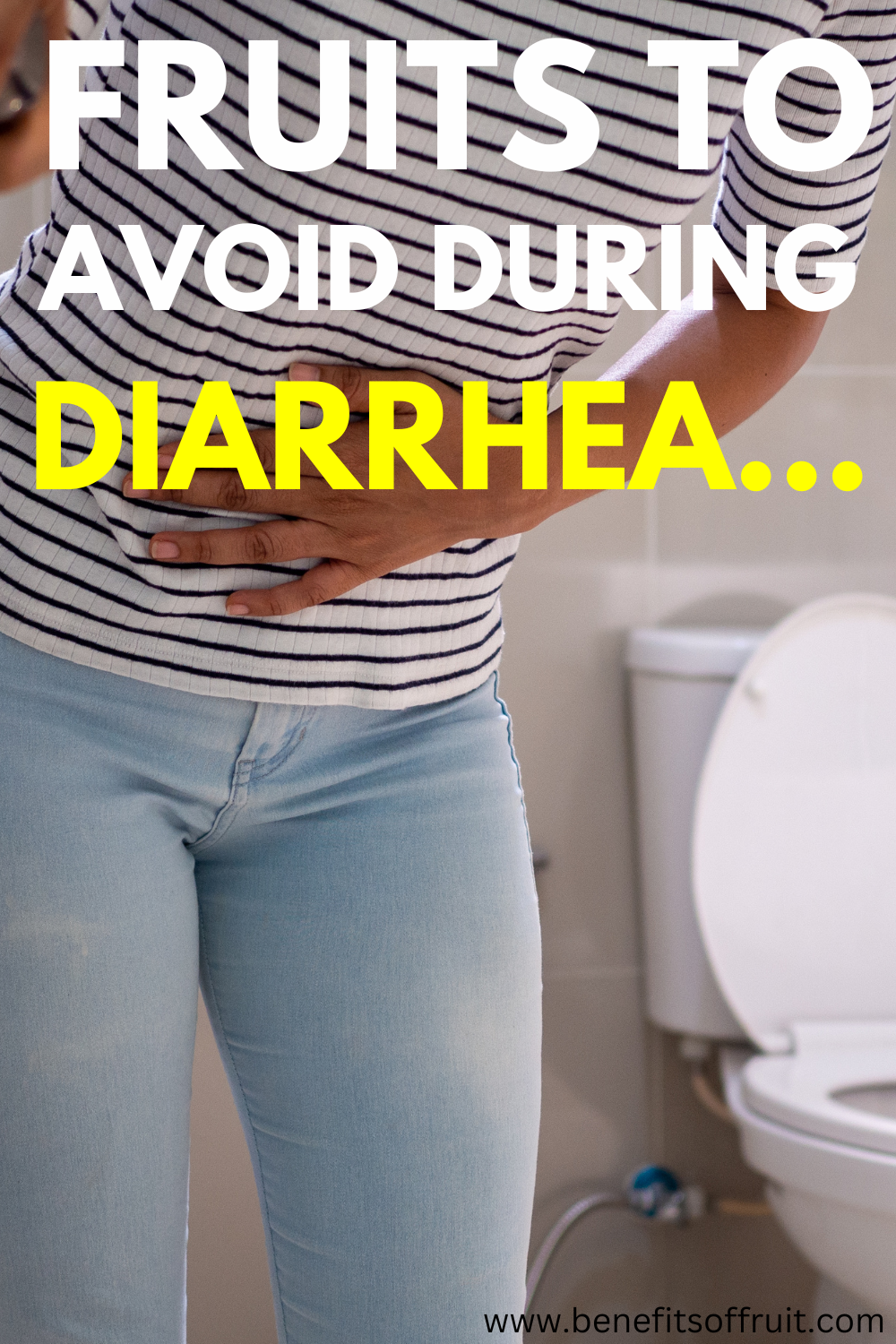Diarrhea is an unpleasant digestive condition characterized by frequent, loose, and watery stools. It’s a common ailment, often caused by infections, dietary habits, stress, or even medication side effects. While many factors contribute to managing and preventing diarrhea, diet plays a critical role. Knowing what to eat—and what to avoid—is essential for recovery. This article focuses on one specific aspect: fruits to avoid during diarrhea. Although fruits are generally considered healthy, some can aggravate diarrhea due to their specific properties.
Understanding the Role of Diet in Diarrhea
The food we consume can have a significant impact on the severity and duration of diarrhea. Certain foods can irritate the digestive system, exacerbate symptoms, and prolong recovery. Diet adjustments can help alleviate symptoms and provide the body with the nutrients needed to recover.
While fruits are nutrient-rich and essential in a healthy diet, they can sometimes worsen diarrhea. High sugar, fiber, or acidity levels can aggravate digestive discomfort. Let’s explore some specific fruits that might be better to avoid during diarrhea.
Fruits to Avoid During Diarrhea
Fruits High in Fiber
Bananas: Bananas are often recommended during diarrhea due to their high potassium content and easily digestible nature. However, overripe bananas can contain higher sugar levels, potentially worsening diarrhea in sensitive individuals. The soft texture and sweetness of overripe bananas might seem harmless, but they can lead to an increased sugar intake, which some people with diarrhea may be unable to tolerate. This can lead to further discomfort and exacerbate symptoms.
Pears and Apples: These fruits, while rich in vitamins and antioxidants, have high fiber content, particularly in their skins. This high fiber content can increase bowel movements and aggravate diarrhea symptoms. Pears and apples also contain significant levels of sorbitol, a sugar alcohol that can have a laxative effect in higher doses, further worsening diarrhea.
Citrus Fruits
Oranges and Grapefruits: Citrus fruits like oranges and grapefruits have a high acidic content that can irritate the stomach lining. For individuals experiencing diarrhea, this irritation can exacerbate the condition and prolong recovery. The acidic nature of these fruits can also increase the production of stomach acid, potentially leading to further discomfort.
Lemons and Limes: Similarly, lemons and limes should be avoided due to their high acidity. While they contain beneficial vitamin C, their sharp acidic profile can further irritate the digestive system during a diarrhea episode.
Dried Fruits
Raisins, Prunes, and Dried Apricots: Dried fruits often pack high fiber and concentrated sugars, which can lead to increased bowel movements and worsen diarrhea symptoms. Prunes, in particular, are known for their laxative properties due to their high sorbitol content, making them particularly unsuitable for individuals with diarrhea. Dried apricots and raisins also contain high levels of fiber and sugar, which can have a similar effect.
Fruits with High Fructose
Apples and Pears: Besides being high in fiber, apples and pears are rich in fructose, a natural sugar that can be difficult to digest for some people. Fructose malabsorption is relatively common and can cause increased bloating, gas, and diarrhea. People with this condition should be especially cautious when consuming fruits high in fructose during a diarrhea episode.
Mangoes and Watermelons: Both mangoes and watermelons contain significant levels of fructose, making them less suitable during diarrhea. Mangoes also have a high sugar content, which can further exacerbate diarrhea symptoms. Watermelon, although refreshing and hydrating, contains a large percentage of water and fructose, potentially leading to increased bowel movements.
Stone Fruits
Cherries, Peaches, and Plums: Stone fruits such as cherries, peaches, and plums are rich in sorbitol, a sugar alcohol known to have a laxative effect. Combined with their high fiber content, they can worsen diarrhea symptoms. Cherries are particularly problematic because of their high sorbitol content, while peaches and plums can cause digestive discomfort due to their fiber-rich skins.
Additional Factors to Consider
While it’s important to know which fruits to avoid, it’s equally important to consider other factors that might impact the severity of diarrhea. Preparation methods, such as juicing or cooking fruits, can affect their digestibility and impact on the digestive system.
- Juices: Fruit juices can be problematic due to their high sugar concentration and absence of fiber, which can lead to a rapid spike in blood sugar levels and worsen diarrhea symptoms.
- Canned Fruits: Canned fruits often contain added sugars, which can further irritate the digestive system during diarrhea.
- Tolerance Variations: It’s worth noting that individual tolerance to certain fruits varies. Some people might tolerate certain fruits better than others during diarrhea. Therefore, monitoring symptoms after consuming particular fruits and adjusting the diet accordingly is essential.
Conclusion
In summary, while fruits are a vital part of a healthy diet, certain ones can exacerbate diarrhea due to their high sugar, fiber, or acidity levels. Avoiding fruits like pears, apples, citrus fruits, dried fruits, and stone fruits can help prevent worsening symptoms and aid in recovery. Additionally, preparation methods and individual tolerances should be considered when adjusting the diet during diarrhea. Always consult with a healthcare provider for personalized advice tailored to individual needs.
